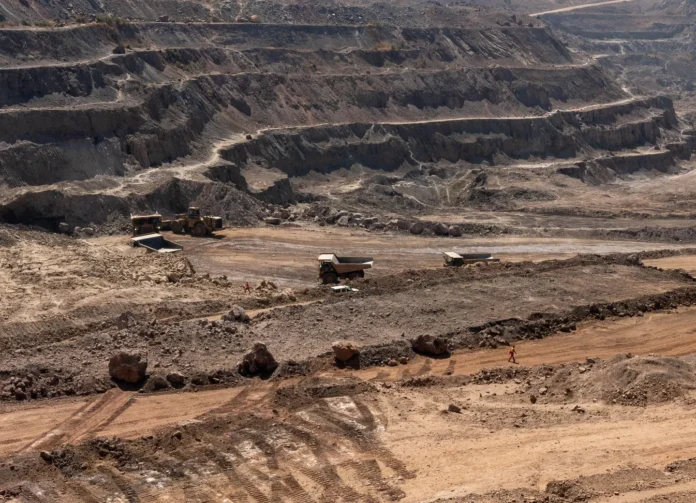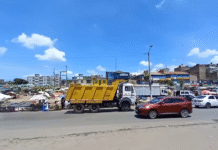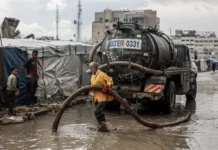At least 32 wildcat miners died when a makeshift bridge collapsed at an illegal cobalt quarry in southeast Democratic Republic of Congo on Saturday, trapping workers in a flooded trench.
Lualaba provincial interior minister Roy Kaumba Mayonde confirmed 32 bodies recovered from the Kalando mine, 42km southeast of Kolwezi, with searches continuing for more victims.
The bridge gave way as miners rushed across to evade heavy rain and landslide risks, despite a formal access ban.
The DRC supplies over 70% of global cobalt, vital for electric vehicle batteries, laptops and phones. More than 200,000 people work in vast illegal mines, often in perilous conditions.
A government agency report blamed panic triggered by soldiers’ presence amid disputes between wildcat diggers, a cooperative and Chinese-linked legal operators.
Miners “piled on top of each other causing the deaths and injuries”, the SAEMAPE agency stated. Images from the National Human Rights Commission showed bodies laid out as survivors dug through mud.
Provincial coordinator Arthur Kabulo said over 10,000 wildcat miners operated at Kalando. Authorities suspended site activities on Sunday.
The disaster underscores systemic dangers in DRC’s cobalt sector, plagued by child labour, corruption and unsafe practices. Mineral wealth fuels a 30-year conflict in the east, while southern mines like Kalando see frequent accidents.
Local officials cited flooding and structural failure of the rickety bridge over a waterlogged zone. Wildcat miners ignored warnings, forcing entry after rains intensified landslide threats.
Human rights groups renewed calls for stricter regulation and corporate due diligence in cobalt supply chains. Major tech and automotive firms face scrutiny over sourcing from artisanal mines linked to exploitation.
The incident follows other recent tragedies, exposing the human cost behind the green energy transition’s key metal.



















